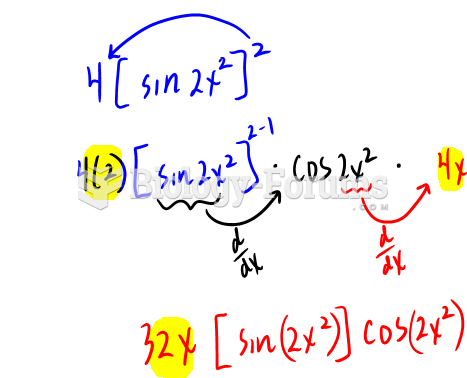|
|
|
According to the Migraine Research Foundation, migraines are the third most prevalent illness in the world. Women are most affected (18%), followed by children of both sexes (10%), and men (6%).
Though “Krazy Glue” or “Super Glue” has the ability to seal small wounds, it is not recommended for this purpose since it contains many substances that should not enter the body through the skin, and may be harmful.
People about to have surgery must tell their health care providers about all supplements they take.
Alcohol acts as a diuretic. Eight ounces of water is needed to metabolize just 1 ounce of alcohol.
More than 20 million Americans cite use of marijuana within the past 30 days, according to the National Survey on Drug Use and Health (NSDUH). More than 8 million admit to using it almost every day.
 The stages of labor and delivery. (A) During the dilation stage the cervix thins and dilates to 10 c
The stages of labor and delivery. (A) During the dilation stage the cervix thins and dilates to 10 c
 Stages of endometrial cancer. Stage I: Mutated cells arise from glandular epithelium of the endometr
Stages of endometrial cancer. Stage I: Mutated cells arise from glandular epithelium of the endometr





